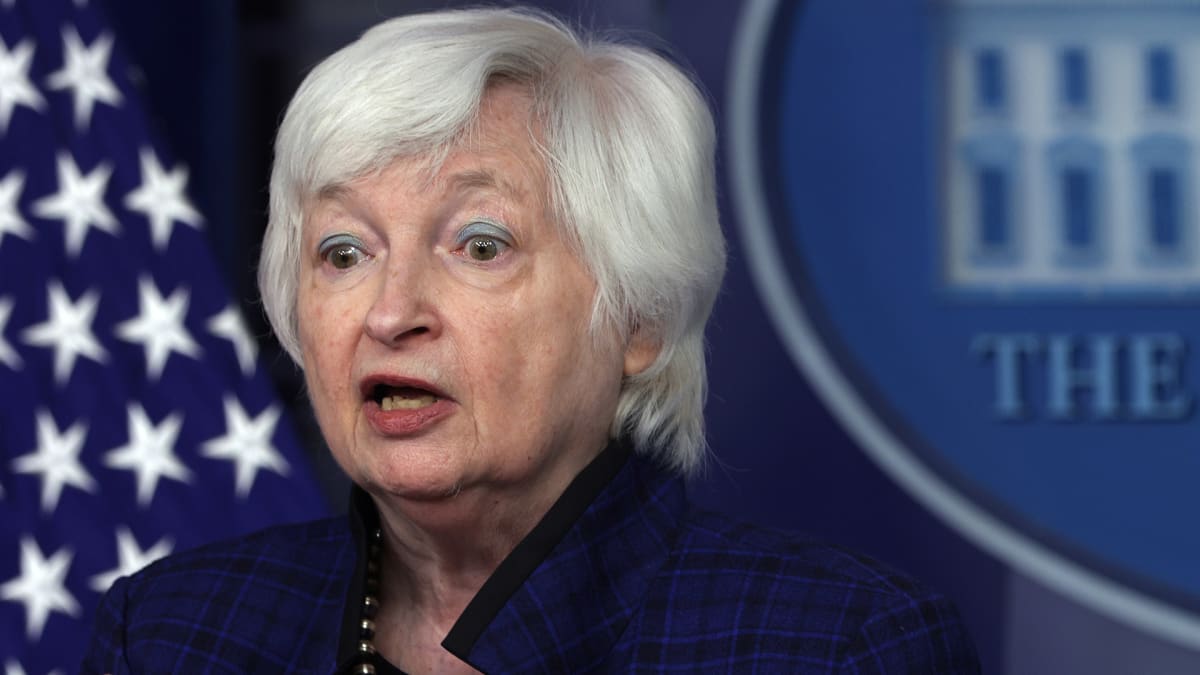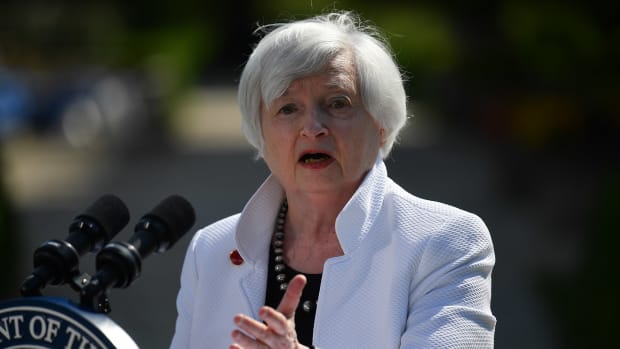
This is the multi-billion dollar question that worries investors around the world.
Will there be an agreement in the United States on raising the debt ceiling between the Democratic President Joe Biden's administration and the Republicans who control the House of Representatives.
The days go by and the same refrain comes back from Washington: still no agreement. The two camps, however, assure that they will reach an agreement despite accusing each other of making unacceptable demands.
Biden and House Speaker Kevin McCarthy will meet in person on May 22 to try to break the deadlock.
The problem is that time continues to tick away, bringing the United States one step closer to default. Without an agreement between Republicans and Democrats to raise the debt ceiling, the US could find itself in a nightmarish default as early as June 1, which Treasury Secretary Janet Yellen has warned could cause widespread "economic chaos.”

Justin Tallis - WPA Pool/Getty
No Money to Pay Bills
Yellen has just sounded the alarm again. According to her, the United States may no longer be able to pay its bills if the debt ceiling is not raised by June 1.
"Well, there's always uncertainty about tax receipts and spending," Yellen said on NBC's "Meet the Press" on May 21. "And so it's hard to be absolutely certain about this, but my assessment is that the odds of reaching June 15 while being able to pay all of our bills is quite low."
Tax payments are expected in mid-June. The bills are the public expenditure of the federal government, including salaries of civil servants, social benefits, reimbursement of creditors, etc.
"On June 15, there are tax payments that are made that are substantial," Yellen continued. "But early June, I interpret as before that, and it would be very difficult to get to that date."
If the standoff persists Yellen said the federal government would have to make "hard choices” about which bills will go unpaid if the debt ceiling is not raised.
"We’re focused on raising the debt ceiling, and there will be hard choices if that doesn’t occur,” she declared. "There can be no acceptable outcomes if the debt ceiling isn’t raised, regardless of what decisions we make.”
Lifting the debt ceiling is needed for the government to cover spending commitments already approved by Congress and the president in order to prevent default. It does not allow new spending, but House Republicans have said they will not raise the debt ceiling if there is no agreement on future spending cuts.
The Treasury Department has been using accounting tricks since the beginning of the year to delay as much as possible the day when this threshold will be exceeded but the room for maneuver is shrinking.
Biden vs. McCarthy
A Moody’s Analytics report found that a default could lead to more than 7 million Americans out of work and the evaporation of $10 trillion in household wealth.
To raise the debt ceiling, Republicans are demanding drastic budget cuts from the federal government, with a reduction in public spending of $130 billion. "Unacceptable” and "extreme” proposals according to president Joe Biden, who threatens to resort to the 14th Amendment to the American Constitution to avoid a default. This amendment states that "the validity of the public debt of the United States [...] shall not be questioned."
But Yellen is skeptical about such a process. For her, the 14th Amendment cannot "be used appropriately in these circumstances, given the legal uncertainty surrounding it and given the tight deadline in which we find ourselves”.
In a video released shortly before the G7 summit, Biden warned that a default on US debt would be "catastrophic" and "devastating for America and, to put it bluntly, the whole world".
McCarthy told reporters, on May 21, that he planned to speak to Biden "in the next hour,” adding that he is glad the president is returning to the U.S.
"I think he’s got to get away from the socialist wing of the Democratic party and represent America. And that means both sides have to have compromise,” McCarthy said. “I’ve been there the entire time.”







